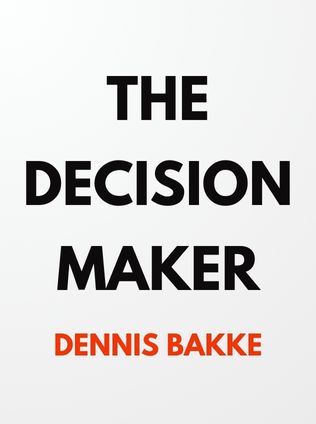
The Decision Maker
Unlock the Potential of Everyone in Your Organization, One Decision at a Time
By Dennis Bakke
Published 03/2013
About the Author
Dennis Bakke, a renowned business leader and author, is celebrated for his innovative approach to organizational management and leadership. He co-founded Imagine Schools, one of the largest nonprofit charter school networks in the United States, and served as the president and CEO of AES, a global power company. Bakke's experience in leading a Fortune 200 company and his passion for education reform have significantly influenced his views on empowering employees and creating engaging work environments. His previous work, Joy at Work: A Revolutionary Approach to Fun on the Job, delves into his philosophy that joy and productivity can coexist in the workplace, a theme that continues in The Decision Maker.
Main Idea
The Decision Maker presents a revolutionary approach to leadership, emphasizing that critical decisions should be made by those closest to the action rather than by top executives. Bakke argues that this model not only enhances decision quality but also fosters a more engaged and motivated workforce. He illustrates this concept through a business fable, demonstrating how giving decision-making power to employees at all levels can transform an organization's culture and performance. This decentralization of decision-making is rooted in the belief that people are naturally creative, responsible, and capable of making good decisions when given the right tools and trust.
Table of Contents
- Introduction
- Bosses Are Less Informed Than People Closer to the Action
- The Big Game
- That's Your Decision
- Basic Assumptions
- The People Closest to the Decision Know the Most and Feel the Most Ownership
- Advice
- The Big Picture
- Is That Your Decision?
- This Place Is Special
- The Decision-Maker Process
- Benefits of the Advice Process
- Accountability
Introduction
The introduction of The Decision Maker sets the stage by challenging the conventional wisdom that leaders should make all major decisions within an organization. Bakke argues that this traditional approach often leads to suboptimal outcomes because it overlooks the valuable insights and expertise of those closest to the action. He introduces the concept of a "decision-making organization," where decision-making power is distributed to individuals at all levels, empowering them to take responsibility and ownership of their work.
Bosses Are Less Informed Than People Closer to the Action
Bakke highlights that leaders at the top of the hierarchy are often less informed about the details of day-to-day operations than the employees working directly with the issues. This idea is illustrated through the story of Tom Anderson, a fictional character who realizes that his employees at MedTec, a medical device company, have valuable knowledge that is often ignored. The narrative demonstrates that when employees are not empowered to act on their knowledge, it can lead to inefficiencies and even disasters, as shown by a machine breakdown that could have been prevented if the worker had been allowed to make decisions independently.
Sign up for FREE and get access to 1,400+ books summaries.
You May Also Like
The Subtle Art of Not Giving a F*ck
A Counterintuitive Approach to Living a Good Life
By Mark MansonRich Dad Poor Dad
What the Rich Teach Their Kids About Money - That the Poor and Middle Class Do Not!
By Robert T. KiyosakiHow To Win Friends and Influence People
The All-Time Classic Manual Of People Skills
By Dale CarnegieQuiet: The Power of Introverts
The Power of Introverts in a World That Can't Stop Talking
By Susan Cain



















